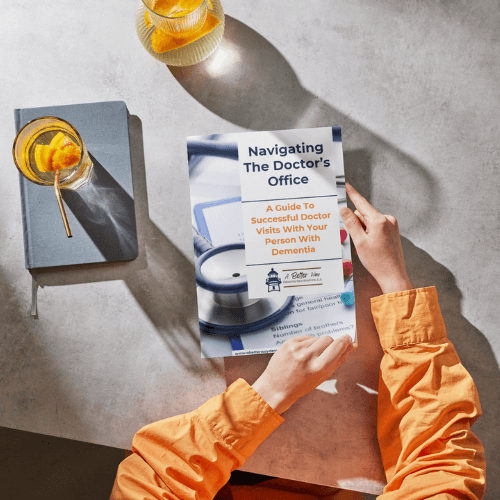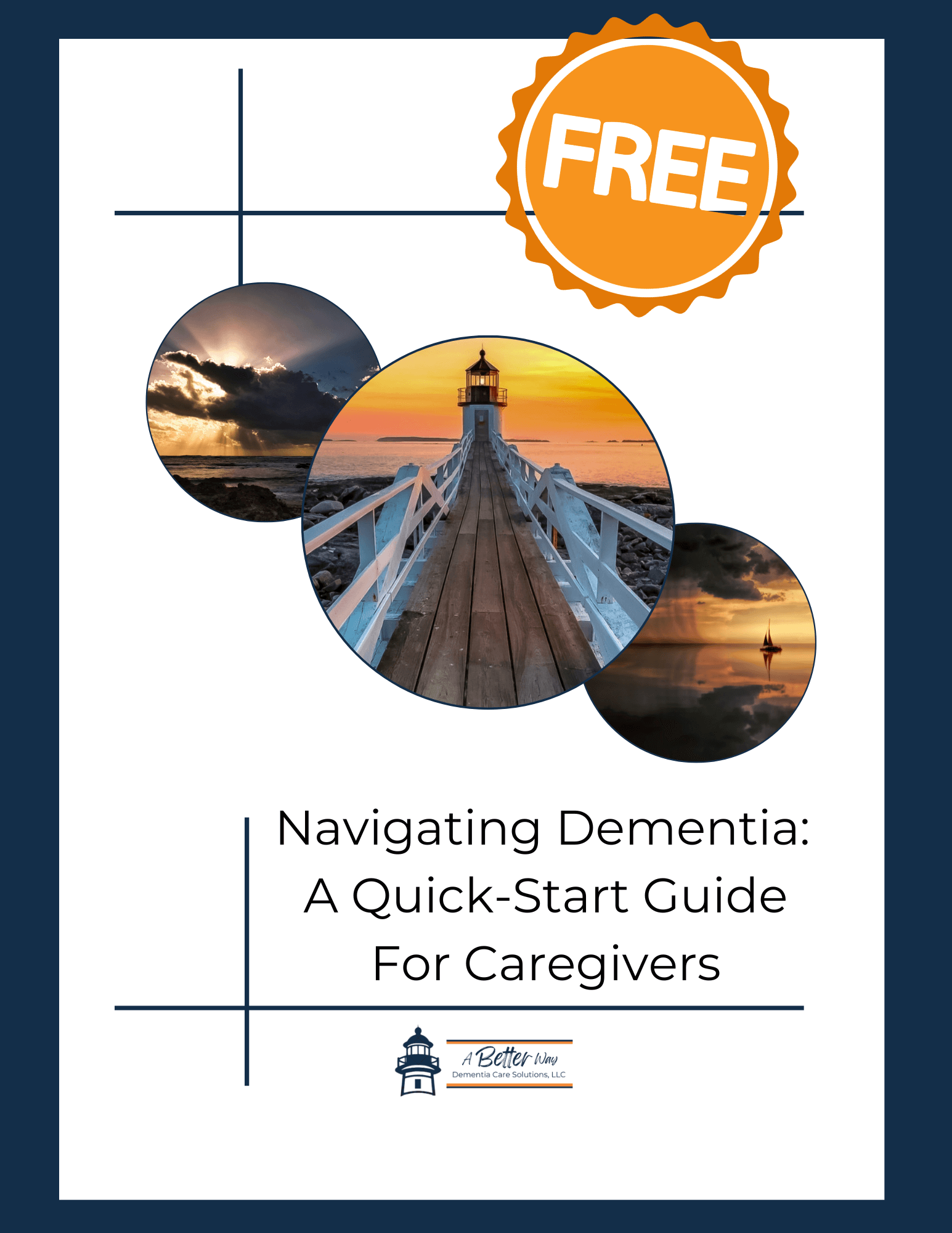
Sleep is one of the most essential forms of self-care, yet it’s often the first thing caregivers sacrifice. Dementia caregiving brings unique challenges that can disrupt your rest, whether it’s due to middle-of-the-night wake-ups, stress, or the unpredictable nature of your caregiving routine. However, prioritizing sleep is crucial—not only for your physical health but also for your emotional resilience and ability to provide the best care.
If you’ve been struggling to get the rest you need, this post will guide you through practical strategies to reclaim your sleep—even when the person you care for doesn’t sleep well—and feel more energized, focused, and balanced.
1. Create a Calm and Consistent Bedtime Routine
A predictable bedtime routine helps signal to your brain that it’s time to wind down, making it easier to fall asleep.
How to establish a routine:
- Set a consistent bedtime and wake-up time, even on weekends.
- Spend the hour before bed doing calming activities like journaling, reading, gentle stretching, or listening to soothing music.
- Avoid screens at least 30 minutes before bed, as the blue light from phones and tablets can interfere with melatonin production. Use blue light blocking glasses to protect your eyes if you must use screens in the evening.
Caregiver Tip:
If the person you care for is restless in the evenings, consider including them in a relaxing bedtime routine. Reading aloud, playing soft music, or offering a warm drink can help calm both of you.
If the person you care for is restless in the evenings, consider including them in a relaxing bedtime routine. Reading aloud, playing soft music, or offering a warm drink can help calm both of you.
2. Make Your Sleep Environment a Sanctuary
Your bedroom should be a place of rest and relaxation. Optimizing your environment can make a significant difference in how well you sleep.
Tips for creating a restful space:
- Keep your bedroom cool, dark, and quiet. Use blackout curtains or a sleep mask to block light, and consider a white noise machine if noise is an issue.
- Invest in a comfortable mattress and supportive pillows that cater to your sleep preferences.
- Remove work-related items or caregiving equipment from the bedroom to mentally separate your sleeping space from daily stressors.
Product Recommendation:
Try the Hatch Restore 3 – a combination sound machine, smart light, and alarm clock designed to help you wind down at night and wake up gently in the morning. Find it on amazon
Try the Hatch Restore 3 – a combination sound machine, smart light, and alarm clock designed to help you wind down at night and wake up gently in the morning. Find it on amazon
3. Use Practical Strategies for Interrupted Sleep
When the person you care for doesn’t sleep well, uninterrupted rest might feel impossible. Implementing flexible strategies can help you get the rest you need, even during challenging times.
Tips for handling interrupted sleep:
- Take shifts: If possible, share nighttime responsibilities with a family member, friend, or paid caregiver to ensure you each get blocks of uninterrupted sleep.
- Use monitoring devices: Baby monitors or motion sensors can alert you to nighttime wandering without requiring you to stay awake.
- Create safe spaces: Set up the person’s bedroom for safety with door alarms, fall mats, or secure barriers to give you peace of mind during light sleep.
- Schedule naps: If your nights are frequently interrupted, allow yourself 20–30 minutes for a power nap during the day.
Try the VTech VM819 Baby Monitor with Camera and Audio- this system lets you monitor your person throughout the day or night easily and allows you peace of mind. Find it on amazon
4. Address Nighttime Caregiving Challenges
If the person you care for has specific issues like sundowning or frequent wake-ups, addressing the root cause can improve both of your sleep.
Strategies for common issues:
- For sundowning: Maintain a consistent evening schedule, limit caffeine, and create a calming environment with dim lights and soothing activities.
- For nighttime wandering: Use safety measures like door locks, bed alarms, or motion-activated lighting to minimize risk and allow you to rest easier.
- For frequent wake-ups: Speak with their doctor to rule out pain, medication side effects, or other medical causes.
Caregiver Tip:
If the person you care for is awake and needs attention, try keeping interaction minimal and calm. A quiet voice, dim lighting, and a short response can help avoid prolonged wakefulness.
If the person you care for is awake and needs attention, try keeping interaction minimal and calm. A quiet voice, dim lighting, and a short response can help avoid prolonged wakefulness.
Product Recommendation:
Try the Hatch Restore 3 for the person you are caring for as well! Find it on amazon
Try the Hatch Restore 3 for the person you are caring for as well! Find it on amazon
Try Motion Censored Lights- light up automatically when motion is detected in the dark to help prevent the person you are caring for from falling. find it on amazon
5. Prioritize Relaxation Techniques Before Bed
Caregivers often go to bed with a racing mind, replaying the day’s challenges or planning for the next. Relaxation techniques can help calm your mind and body, preparing you for restful sleep.
Effective techniques to try:
- Progressive muscle relaxation: Start at your toes and slowly tense and release each muscle group in your body as you move upward.
- Meditation or mindfulness: Focus on your breath or a calming visualization to quiet intrusive thoughts.
- Journaling: Spend a few minutes writing down your worries or to-dos before bed to help clear your mind.
When to use it:
Try these techniques as part of your evening routine or during moments of wakefulness at night.
Try these techniques as part of your evening routine or during moments of wakefulness at night.
Product Recommendation:
Try the Calm App- Mindfulness, meditation, relaxation, and guided programs to build healthy habits. Find the Calm App here
Try the 365 Days of Care: A Reflection Journal for Dementia Caregivers- This guided journal offers daily prompts designed to support self-reflection, gratitude, and mindfulnes. Perfect resource to help you manage the unique challenges of caregiving. Find it on amazon
6. Take Advantage of Respite Opportunities
When sleepless nights become the norm, respite care can provide a much-needed break to help you recover.
Options to consider:
- Ask family members, neighbors, or church volunteers to take over for a few hours.
- Explore professional respite care services, even for short periods.
- Plan ahead for respite weekends to catch up on rest and recharge.
Remember:
Your well-being is just as important as the care you provide. Prioritizing your rest helps you be the best caregiver you can be.
Your well-being is just as important as the care you provide. Prioritizing your rest helps you be the best caregiver you can be.
Conclusion
As a caregiver, disrupted sleep might feel like an unavoidable part of your role. But with a combination of practical strategies, self-compassion, and support, you can take steps toward reclaiming rest. Whether it’s creating a calming bedtime routine, addressing nighttime challenges, or seeking support when needed, your sleep matters—and it’s worth fighting for.
Call to Action:
Which strategies from this list will you try this week? Share your experiences in the comments or join our private caregiver support group to connect with others navigating similar challenges. Let’s prioritize your rest together!
Which strategies from this list will you try this week? Share your experiences in the comments or join our private caregiver support group to connect with others navigating similar challenges. Let’s prioritize your rest together!
Join Our Private Caregiver Community
If you're looking for a safe space to share your caregiving experiences, ask questions, or simply connect with others who understand the challenges you face, join our private Facebook support group for caregivers. It's a supportive, empathetic community where you can find encouragement and answers when you need them most. Click here to join.
Subscribe to Our Newsletter & Download Your Free E-Book
For more valuable tips, resources, and updates on dementia care, click here to subscribe to our newsletter today!
To help you prepare for and manage doctor’s appointments with the person you care for, click here to receive our free downloadable e-book, Navigating the Doctor's Office: A Caregiver’s Guide.

Affiliate Disclosure
A Better Way - Dementia Care Solutions, LLC participates in the Amazon Associates Program, which means we earn a small commission when you buy through links on our site, at no extra cost to you. We only recommend products that we believe can help caregivers on their journey.
Disclaimer: The information provided in this blog is for educational purposes only and should not be considered medical advice. Always consult with a doctor or a licensed physical therapist before starting any new exercise routine, using assistive devices, or following the recommendations mentioned. Every individual’s needs are different, and professional guidance is essential to ensure safety and appropriateness of care.
Want to keep figuring this out together?
Subscribe to Finding Our Way in Dementia Care and get honest stories, helpful tips, and gentle support delivered to your inbox every week. Just real talk, grounded care, and space to breathe.
Subscribe to Finding Our Way in Dementia Care and get honest stories, helpful tips, and gentle support delivered to your inbox every week. Just real talk, grounded care, and space to breathe.
Kind truth. Clear steps. Warm guide.

















0 Comments